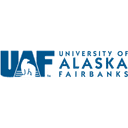This course is part of Geographic Information Systems (GIS) Essentials.
This comprehensive course introduces learners to three-dimensional Geographic Information Systems (3D GIS) concepts and tools. Students will master ArcGIS Scene to visualize and analyze geospatial data in 3D, enabling deeper insights for problem-solving and decision making. The course covers essential topics including terrain visualization, volumetric analysis, watershed delineation, and LiDAR data processing. Participants will learn to work with Digital Elevation Models (DEM), conduct tree height analysis, and perform various 3D spatial analyses. The course combines theoretical knowledge with practical applications in environmental monitoring, resource management, and urban planning.
4.3
(20 ratings)
5,143 already enrolled
Instructors:
English
English, Spanish
What you'll learn
Navigate and visualize 3D data effectively in ArcGIS Scene
Master editing and processing of 3D feature data
Conduct accurate volumetric analysis using spatial tools
Work with Digital Elevation Models (DEM) and elevation raster data
Perform watershed mapping and delineation
Analyze LiDAR data for tree height assessment
Skills you'll gain
This course includes:
PreRecorded video
Graded assignments, Exams
Access on Mobile, Tablet, Desktop
Limited Access access
Shareable certificate
Closed caption
Get a Completion Certificate
Share your certificate with prospective employers and your professional network on LinkedIn.
Created by
Provided by

Top companies offer this course to their employees
Top companies provide this course to enhance their employees' skills, ensuring they excel in handling complex projects and drive organizational success.





There are 4 modules in this course
This course provides comprehensive training in 3D GIS applications using ArcGIS Scene. Students learn to navigate, visualize, and analyze 3D spatial data, including elevation models, LiDAR data, and feature datasets. The curriculum covers fundamental concepts like watershed delineation, volumetric analysis, and tree height assessment using LiDAR. Special emphasis is placed on practical applications in environmental monitoring, resource management, and terrain analysis. The course includes hands-on training with ArcGIS Pro software and access to real-world datasets.
3D GIS Introduction
Module 1
3D Feature and Elevation Raster Analysis
Module 2
Watershed Delineation
Module 3
Tree Height Analysis from LiDAR Data
Module 4
Fee Structure
Individual course purchase is not available - to enroll in this course with a certificate, you need to purchase the complete Professional Certificate Course. For enrollment and detailed fee structure, visit the following: Geographic Information Systems (GIS) Essentials
Instructors

4 Courses
Distinguished Arctic Scientist and Remote Sensing Expert
Santosh K. Panda serves as Associate Professor of GIS and Remote Sensing at the University of Alaska Fairbanks, where he holds joint appointments with the Geophysical Institute and the Institute of Agriculture, Natural Resources and Extension. His research focuses on understanding Arctic landscape dynamics, particularly permafrost response to climate change and its effects on Arctic systems. After completing his PhD in Geology from UAF, he has pioneered high-resolution permafrost modeling across Alaska's national parks and developed innovative approaches to mapping boreal forest wildfire patterns using hyperspectral remote sensing. His work includes significant community engagement, notably building capacity for permafrost monitoring in native villages of Telida and Nikolai, and mapping Colville River bathymetry to support safe river navigation. As principal investigator for the Alaska NSF EPSCoR Fire and Ice project, he leads research on improving boreal wildfire fuel mapping. His publications have garnered over 795 citations, with significant contributions to permafrost dynamics modeling, remote sensing applications, and Arctic landscape change analysis. Beyond research, he maintains an active teaching role in remote sensing and GIS at both undergraduate and graduate levels while advancing the application of spatial technologies to understand Arctic environmental changes.

4 Courses
Distinguished Remote Sensing Expert and Boreal Forest Researcher
Dr. Anushree Badola serves as Postdoctoral Researcher at the Institute of Agriculture, Natural Resources and Extension, University of Alaska Fairbanks, where she specializes in hyperspectral remote sensing and machine learning applications for forestry and agriculture. Her groundbreaking research includes developing novel methods to simulate AVIRIS-NG hyperspectral imagery from Sentinel-2 data for improved vegetation and wildfire fuel mapping in boreal Alaska. After earning her Master's in Geoinformatics from the University of Twente and IIRS, ISRO, Dehradun, she completed her PhD at UAF's Geophysical Institute. Her work with the Alaska NSF EPSCoR Fire and Ice project has significantly advanced boreal forest monitoring techniques, achieving improved classification accuracies from 77.8% with Sentinel-2 to 94.4% with AVIRIS-NG data. Her research portfolio includes innovative approaches to tree species mapping in tropical forests, sub-pixel needleleaf cover fraction estimation in boreal forests, and development of spectral reconstruction methods for vegetation mapping. As a skilled programmer in Python and R with expertise in various GIS tools including QGIS, ArcGIS, ENVI, and Erdas Imagine, she continues to advance the field of remote sensing while focusing on improving wildfire fuel mapping technologies for better forest management.
Testimonials
Testimonials and success stories are a testament to the quality of this program and its impact on your career and learning journey. Be the first to help others make an informed decision by sharing your review of the course.
Frequently asked questions
Below are some of the most commonly asked questions about this course. We aim to provide clear and concise answers to help you better understand the course content, structure, and any other relevant information. If you have any additional questions or if your question is not listed here, please don't hesitate to reach out to our support team for further assistance.



